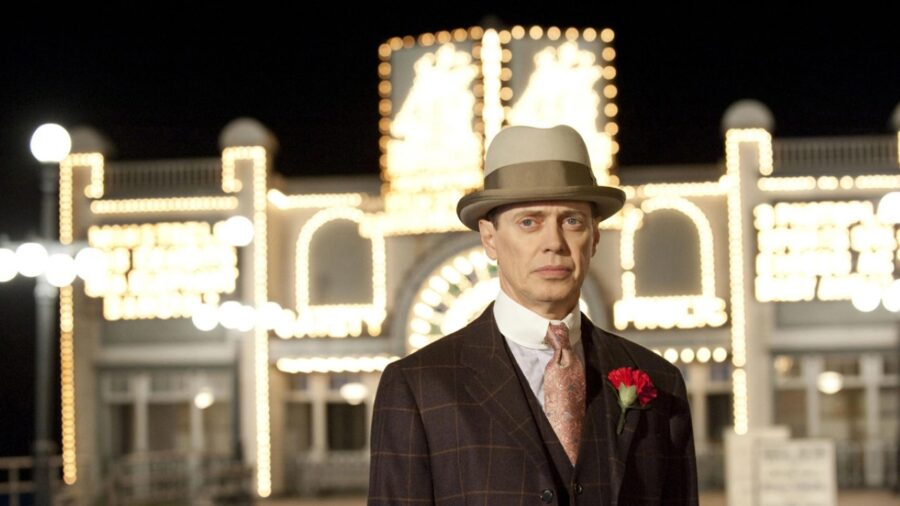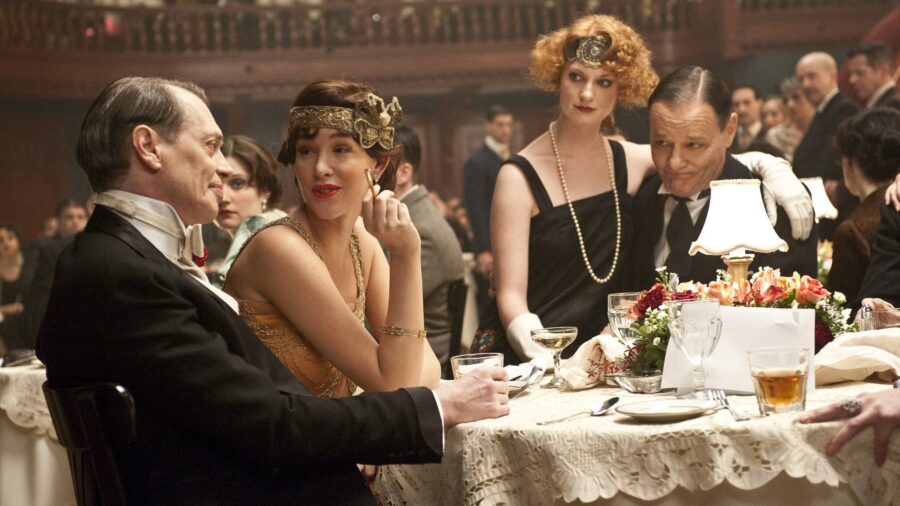Boardwalk Empire Is The Best Mafia Show Ever Made
Boardwalk Empire was grander in scope, action, and characters than The Sopranos, making it a slightly better series.

When The Sopranos debuted in 1999, it forever changed the landscape of television, introducing adult storylines about morally grey protagonists to the mainstream and laying the groundwork for later hits like Breaking Bad, Ray Donovan, and of course, Boardwalk Empire. Filling the void left in HBO’s programming after the unsatisfying end to James Gandolfini’s series, Boardwalk Empire explores the origins of the New Jersey mafia along the Atlantic City boardwalk. There are clear differences between the two shows, from the time period to the use of hard violence, all of which add up to make the sage of Steve Buscemi‘s half-a-gangster better than The Sopranos.
Let’s get this out of the way early, Boardwalk Empire would not exist without The Sopranos, and both series are landmark television events, but place them side by side, and the historical drama wins out. The combination of historical figures like Lucky Luciano (Vincent Piazza), Al Capone (Stephen Graham), and Nucky Thompson (Steve Buscemi) with dramatized real events created a compelling combination of the glitz, glamour, and sleaze of 1920s Atlantic City. The Black Sox scandal is a plot point in one of the early seasons, and real-life locations, from the Ritz-Carlton to Babbette’s Night Club, serve as the setting for countless shady deals.
The Sopranos, being a modern mob tale, tells the story of the decline of notorious crime families while Boardwalk Empire is at the beginning, highlighting the incredible money to be made during Prohibition. Tony Soprano struggled to keep operations going in a neighborhood, while Nucky Thompson managed the coffers for an entire city, milking drama out of storylines based on alcohol production and keeping a diverse city from tearing itself apart along racial lines. The sense of scale is much more dramatic in the historical series, where every action can impact all crime along the Eastern seaboard.

Boardwalk Empire Season 3 touches on that final point in its over-arching storyline involving Nucky Thompson insulting Gyp Rossetti (Bobby Cannavale), setting off a bloody gang war that rages through three cities. In just a few episodes, the body count exceeds the entire series of The Sopranos, with action pieces that the modern series never attempted. Unlike other gangster movies, in particular Gangster Squad, the violence always serves the larger story being told.
Towards the end of the show’s run, Boardwalk Empire touched on race, a topic that the Italian crew of The Sopranos didn’t have to worry about 364 days of the year, with the one exception being Columbus Day. Chalky (Michael K Williams), a black gangster working under Nucky, rises up and assumes a seat of power, setting off a conflict not with the other gangsters but with his own community through Dr. Valentin Narcisse (Jeffrey Wright) and the origins of the heroin epidemic. In earlier seasons, the show used Nucky’s mistress, Margaret Thompson (Kelly Macdonald), to discuss issues from getting women the right to vote and trying to join the workforce.
Through glitz, glamour, action, and leaning into the sordid underbelly of the bright lights in Atlantic City, Boardwalk Empire goes further and bigger than The Sopranos ever did. Watching a rise to power is always more exciting than the slow decline, and best of all, the series has a definite conclusion. Both shows can be found streaming on HBO Max, and each is worth your time so that you can decide which is better for yourself.









